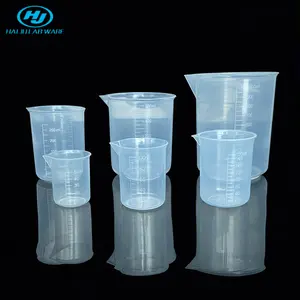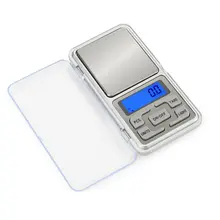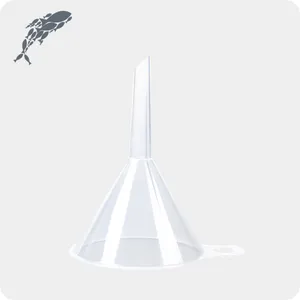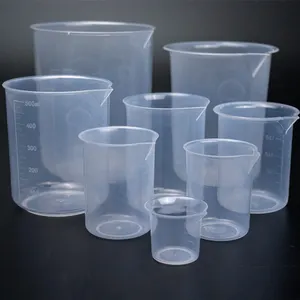Exploring the Versatility of Plastic Beakers
Plastic beakers are a staple in various scientific settings, from educational laboratories to industrial research. These containers are essential for measuring, mixing, and handling liquids and solids in numerous scientific processes. The utility of plastic beakers extends beyond their traditional use, adapting to the evolving needs of modern science.
Types and Materials
The range of plastic beakers includes a variety of materials, such as polypropylene and polyethylene, each selected for its specific properties. Polypropylene beakers, known for their durability and chemical resistance, are suitable for a wide array of applications. On the other hand, polyethylene beaker options offer flexibility and are often used in situations requiring a softer material. These beakers come in different forms, including plastic beakers with lids for secure storage and plastic beaker with handle designs for ease of use.
Design and Features
Design considerations for plastic lab beakers focus on functionality and safety. The beakers are available in transparent and opaque designs, with some featuring easily readable graduations for precise measurements. Options like the 250 ml plastic beaker and 500ml plastic beaker are common for routine experiments, while larger sizes like the plastic beaker 1000 ml cater to experiments requiring more volume. Spill-proof features and well-crafted edges ensure safe and efficient handling during experiments.
Applications and Advantages
Plastic science beakers are not limited to academic settings; they are also prevalent in industrial research and development. The adaptability of these beakers makes them suitable for a broad range of applications, from biological studies to chemical analysis. The advantage of using plastic measuring beaker options lies in their resilience to breakage and lightweight nature, making them a practical choice for fieldwork and educational settings where durability is key.
Selection and Usage
When selecting a plastic beaker, consider the specific needs of the experiment, such as temperature resistance and chemical compatibility. For instance, beaker pp (polypropylene) variants are often chosen for their ability to withstand higher temperatures. In contrast, plastic drinking beakers are designed for everyday use and are typically made from materials safe for food contact.
Environmental Considerations
With an increasing focus on sustainability, the choice of plastic beakers also involves considering the environmental impact. Reusable beakers are available for those seeking to minimize waste, while disposable options offer convenience for fast-paced or contamination-sensitive environments. It is essential to balance practical requirements with ecological responsibility when choosing the appropriate beaker for your needs.





























 浙公网安备 33010002000092号
浙公网安备 33010002000092号 浙B2-20120091-4
浙B2-20120091-4